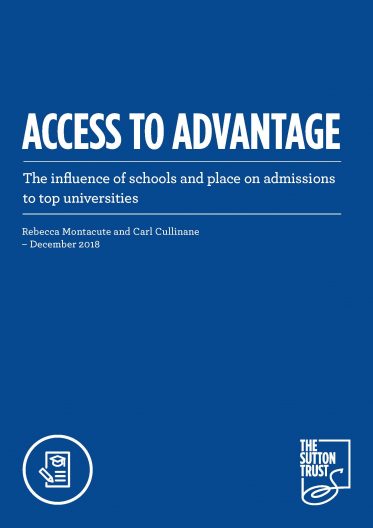Report Overview
In 2011, the Sutton Trust published Degrees of Success, which looked at university acceptance rates and how they differ by school type and area, finding state school pupils were considerably less likely to go to top universities than independent or grammar school pupils.
Access to Advantage returns to the issues raised in this report, with findings showing little has changed. In the UK, whether someone goes to university, and if so at which institution they study, is still highly impacted by an individual’s socioeconomic background, the school they attend and where in the country they are from.
Authored by Sutton Trust Research Fellow Rebecca Montacute and Carl Cullinane, this report uses UCAS data to analyse university acceptance rates for the 2015-2017 cohorts by school type and region, and discusses what schools and universities can do to help close the gap in Higher Education participation rates in England.
